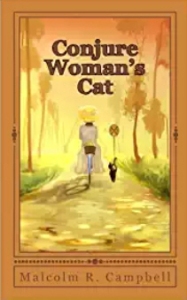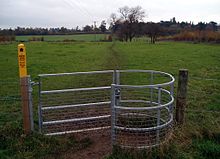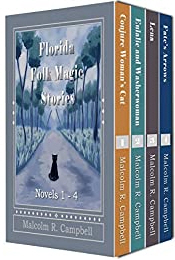 “According to his own account, while experimenting with sleep-learning in 1958 Monroe experienced an unusual phenomenon, which he described as sensations of paralysis and vibration accompanied by a bright light that appeared to be shining on him from a shallow angle. Monroe went on to say that this occurred another nine times over the next six weeks, culminating in his first out-of-body experience (OBE). Monroe recorded his account in his 1971 book “Journeys Out of the Body” and went on to become a prominent researcher in the field of human consciousness. Monroe later authored two more books on his experiments with OBE, Far Journeys (1985) and Ultimate Journey (1994).” – Wikipedia
“According to his own account, while experimenting with sleep-learning in 1958 Monroe experienced an unusual phenomenon, which he described as sensations of paralysis and vibration accompanied by a bright light that appeared to be shining on him from a shallow angle. Monroe went on to say that this occurred another nine times over the next six weeks, culminating in his first out-of-body experience (OBE). Monroe recorded his account in his 1971 book “Journeys Out of the Body” and went on to become a prominent researcher in the field of human consciousness. Monroe later authored two more books on his experiments with OBE, Far Journeys (1985) and Ultimate Journey (1994).” – Wikipedia
(Learn More About Monroe in Ronald Russell’s book shown above with a link to its Amazon page)
From the Publisher
 “The definitive work on the extraordinary phenomenon of out-of-body experiences, by the founder of the internationally known Monroe Institute.
“The definitive work on the extraordinary phenomenon of out-of-body experiences, by the founder of the internationally known Monroe Institute.
“Robert Monroe, a Virginia businessman, began to have experiences that drastically altered his life. Unpredictably, and without his willing it, Monroe found himself leaving his physical body to travel via a “second body” to locales far removed from the physical and spiritual realities of his life. He was inhabiting a place unbound by time or death.
“Praise for Journeys Out of the Body
“Monroe’s account of his travels, Journeys Out of the Body, jam-packed with parasitic goblins and dead humans, astral sex, scary trips into mind-boggling other dimensions, and practical tips on how to get out of your body, all told with wry humor, quickly became a cult sensation with its publication in 1971, and has been through many printings. Whatever their ‘real’ explanation, Monroe’s trips made for splendid reading.” —Michael Hutchinson, author of Megabrain
“‘Robert Monroe’s experiences are probably the most intriguing of any person’s of our time, with the possible exception of Carlos Castaneda’s.’ —Joseph Chilton Pierce, author of Magical Child
“‘This book is by a person who’s clearly a sensible man and who’s trying to tell it like it is. No ego trips. Just a solid citizen who’s been ‘out’ a thousand times now and wants to pass his experiences to others.'” —The Last Whole Earth Catalog
Related Sources
 The Monroe Institute – “Founded in 1971 by Robert A. Monroe, the Monroe Institute is widely recognized as a leading center for exploring and experiencing expanded states of consciousness. For over 50 years, our immersive programs have empowered participants to undergo profound transformations, gaining a fresh outlook on life and discovering a deep sense of purpose.”
The Monroe Institute – “Founded in 1971 by Robert A. Monroe, the Monroe Institute is widely recognized as a leading center for exploring and experiencing expanded states of consciousness. For over 50 years, our immersive programs have empowered participants to undergo profound transformations, gaining a fresh outlook on life and discovering a deep sense of purpose.”
HemiSync – “Combining rich atmospheric tones with ambient instrumentals and electronic accents, this peaceful composition leads you to a place of deep inner stillness. The Hemi-Sync® frequencies are designed to gently hold you in a state of “no time” — the perfect setting for escaping the rigors of the day, where you can relax and allow the tranquility to permeate your mind, body and soul. Length: 40 minutes.”
—Malcolm
 I’m pleased to see the release of Lowinsky’s sixth poetry collection on June 1. A Jungian analyst, Lowinsky creates poetry I greatly appreciate, including Adagio and Lamentation in 2010 from Fisher King Press.
I’m pleased to see the release of Lowinsky’s sixth poetry collection on June 1. A Jungian analyst, Lowinsky creates poetry I greatly appreciate, including Adagio and Lamentation in 2010 from Fisher King Press. “Naomi Ruth Lowinsky’s book of poetry: Your Face in the Fire, speaks with an impassioned voice which opens us up to that vast space which we find in Jung’s Red Book. It is a vibrant standpoint from which she encounters the mysteries of the psyche. Through her poetic imagination, we get to participate in her vision-making process. Nourished by her dreams that invite us to imagine with her as she expresses a lifetime of creating, engaging, reflecting, and reworking while showing us how her process is not only transformational for her but for anyone who opens up to the reality of their experiences of psyche’s being. The archetypal dimension shines through this book.” – Sam Kimbles
“Naomi Ruth Lowinsky’s book of poetry: Your Face in the Fire, speaks with an impassioned voice which opens us up to that vast space which we find in Jung’s Red Book. It is a vibrant standpoint from which she encounters the mysteries of the psyche. Through her poetic imagination, we get to participate in her vision-making process. Nourished by her dreams that invite us to imagine with her as she expresses a lifetime of creating, engaging, reflecting, and reworking while showing us how her process is not only transformational for her but for anyone who opens up to the reality of their experiences of psyche’s being. The archetypal dimension shines through this book.” – Sam Kimbles “Friendly Persuasion is a 1956 American Civil War drama film produced and directed by William Wyler. It stars Gary Cooper, Dorothy McGuire, Anthony Perkins, Richard Eyer, Robert Middleton, Phyllis Love, Mark Richman, Walter Catlett and Marjorie Main. The screenplay by Michael Wilson was adapted from the 1945 novel The Friendly Persuasion by Jessamyn West. The movie tells the story of a Quaker family in southern Indiana during the American Civil War and the way the war tests their pacifist beliefs.” –
“Friendly Persuasion is a 1956 American Civil War drama film produced and directed by William Wyler. It stars Gary Cooper, Dorothy McGuire, Anthony Perkins, Richard Eyer, Robert Middleton, Phyllis Love, Mark Richman, Walter Catlett and Marjorie Main. The screenplay by Michael Wilson was adapted from the 1945 novel The Friendly Persuasion by Jessamyn West. The movie tells the story of a Quaker family in southern Indiana during the American Civil War and the way the war tests their pacifist beliefs.” –  The film was drawn from the 1945 novel of the same name by Jessamyn West, a Quaker who wrote a plotless novel story about Quaker life. She was drawn into the making of the film through her willingness to pull together materials from her novel about the Civil War era that would make a cohesive story for the movie.
The film was drawn from the 1945 novel of the same name by Jessamyn West, a Quaker who wrote a plotless novel story about Quaker life. She was drawn into the making of the film through her willingness to pull together materials from her novel about the Civil War era that would make a cohesive story for the movie. Among other things, the freewheeling approach makes writing the book as much fun as reading the book. Every time I start a new chapter, I have no idea what’s coming.
Among other things, the freewheeling approach makes writing the book as much fun as reading the book. Every time I start a new chapter, I have no idea what’s coming.


 The Monroe Institute
The Monroe Institute 


 I would have been ticked off paying for the tickets.
I would have been ticked off paying for the tickets.
 A kissing gate is a traditional way of allowing access, but not security, between a pasture or other open area used for livestock, and the grounds of an estate where animals are not permitted. In a modern farm, one would probably place a latching gate there with or without a padlock as needed.
A kissing gate is a traditional way of allowing access, but not security, between a pasture or other open area used for livestock, and the grounds of an estate where animals are not permitted. In a modern farm, one would probably place a latching gate there with or without a padlock as needed.


 According to
According to  Following that introduction, the site lists specific uses, including wounds, skin inflamation, menstrual paint, IBS (irritual bowel syndrome), and ailments for which its use has been studied. Check the site for site effects and precautions.
Following that introduction, the site lists specific uses, including wounds, skin inflamation, menstrual paint, IBS (irritual bowel syndrome), and ailments for which its use has been studied. Check the site for site effects and precautions.